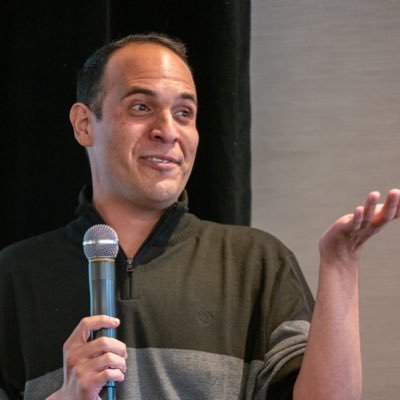
Boris Sobolev
@soboleffspaces
Followers
1K
Following
3K
Media
897
Statuses
5K
𝗦𝗰𝗵𝗼𝗹𝗮𝗿/𝗔𝘂𝘁𝗵𝗼𝗿/𝗧𝗲𝗮𝗰𝗵𝗲𝗿 • causality in plain language •
Vancouver
Joined December 2019
Both causation and covariation manifest themselves as associations. Just because some features drive the black-box predictions doesn’t mean changing their values will actually change the outcome in real life. Kinda like that old joke — nobody ever promised to feed the masses in.
1
0
3
Thank you Elias for pushing our thinking this direction, and please pass my admiration to Drago for his productivity…. I’m wondering why did you use another LLM as the ground truth here? it just adds another abstraction… I mean, wouldn’t it be more convincing to estimate.
Also curious to hear the thoughts from the folks in the original thread (forgot to cc): @yudapearl @GaryMarcus @soboleffspaces @geoffreyhinton @DavidDeutschOxf.
1
0
3
RT @yudapearl: I’m thrilled to share that the Second Edition of The Book of Why will be released at the end of this year. It will include b….
0
78
0
I’d go even further than Schopenhauer’s: “Man can do what he wills, but he cannot will what he wills.”. Ideas are determined; ideas don’t determine.
To readers who ask whether the Paradox of Inevitable Regret has influenced my stance on free will the answer is NO, the former would persist even if free will is an illusion.
0
0
0
“Evidence-based enterprise” turns science into clickbait journalism; headlines get crowned as truth and then swung like a machete in every argument.
Remember the confusion about Evidence-Based Medicine? It is now coming to AI: Twenty smart authors debate what Evidence-Based AI should mean, without first agreeing on what it means in ordinary science. @GaryMarcus @eliasbareinboim @soboleffspaces.
0
0
2
That’s not correct! 👇🏻 The assumption is much milder. We just need to assume that the factors we condition on (or stratify on, in epi lingo) block all chains of dependency that could connect the exposure and the outcome. A minimally sufficient adjustment set may not include.
@dylanarmbruste3 @f2harrell @_MiguelHernan You have to assume that all confounders were measured and properly conditioned on.
2
1
5
RT @JacobJHutton: @AdanBecerraPhD @soboleffspaces @yudapearl Yes a counterfactual mediation analysis was used to estimate the Natural Direc….
pubmed.ncbi.nlm.nih.gov
Unwitnessed OHCA account for the majority of OHCAs, yet survival is dismal. Methods to improve recognition, such as with biosensor technologies, may lead to substantial improvements in overall...
0
1
0
Congratulations to @JacobJHutton on a successful defense!. What a feast for causal inference: causal diagrams, minimal adjustment sets, mediation analysis, direct and indirect effects, probability of benefit — all in the context of cutting-edge clinical practice!. @yudapearl
1
1
6
RT @yudapearl: Exciting breakthrough from @eliasbareinboim -- a counterfactual-calculus (cfl-calculus), akin to do-calculus, for handling i….
0
4
0
This early post helps connect with @yudapearl’s question about “The False Promise of ChatGPT” in the NYT. My view reflects ideas from pragmatic philosophy — thinkers like Popper, Dewey, Peirce, and even Mao Zedong’s “On Practice.” I’m also using this to push back on Noam.
1
0
1
I briefly addressed this in my earlier posts on X:. Scientific discovery is a collective human enterprise. Many discoveries weren’t due to language; not all involved language. Minds constantly generate ideas. Most are wrong once tested against reality, but rare successes become.
In March 2023, The New York Times published an opinion article by Noam Chomsky, titled “The False Promise of ChatGPT.” See The article argues that current investment in ChatGPT-style machine learning is fundamentally misguided, as it diverts attention.
1
0
2








